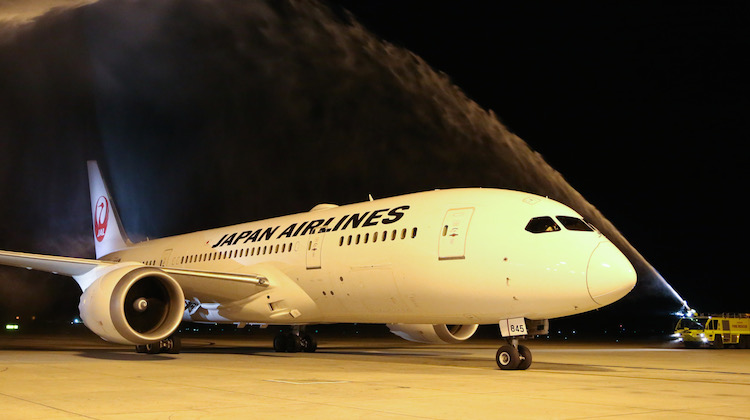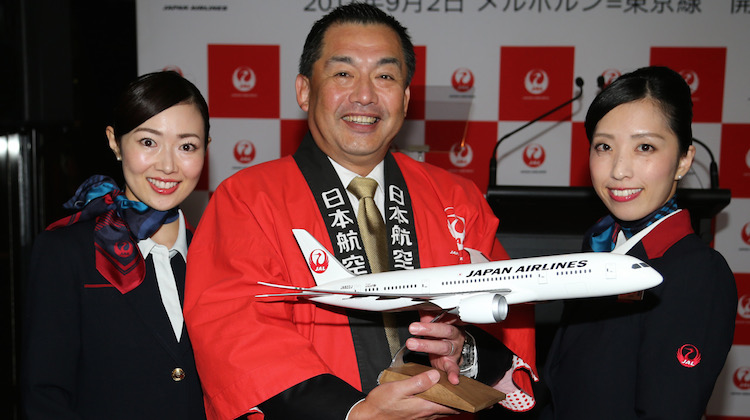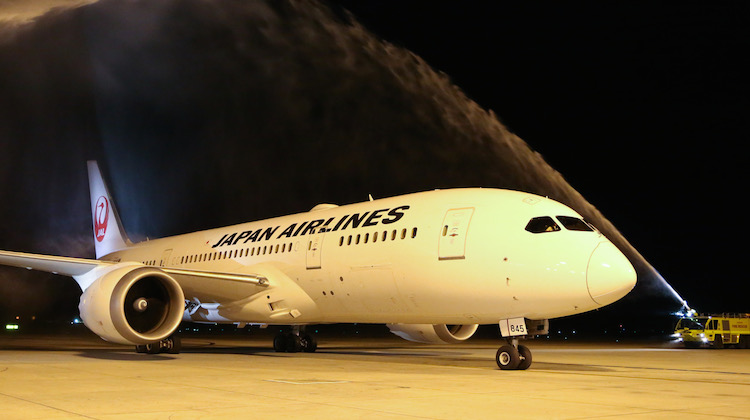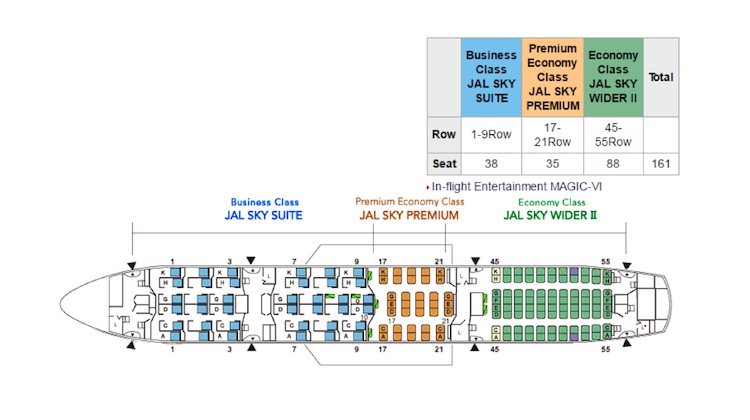
Japan Airlines has underlined the resurgence in the Australia-Japan market with the start of nonstop Melbourne-Tokyo (Narita) flights.
The inaugural service, operated as flight JL773 by Boeing 787-8 JA845J, touched down at Melbourne Tullamarine just before 2200 on Friday night after a 10 and a half hour journey from Tokyo Narita.
The aircraft received an Airservices Aviation Rescue and Fire Fighting (ARFF) monitor cross as it taxiied to the gate, while there were some festivities in the terminal commemorating the inaugural flight.


The 787-8 was on the ground for about two hours before operating JL774 back to Tokyo Narita.
Japan Airlines’ 787-8s used on the Melbourne route feature 161 seats, comprising 38 business class seats with direct aisle access for every passenger, 35 premium economy seats in a 2-3-2 configuration and 88 economy seats in a passenger pleasing eight across 2-4-2 layout.
The airline is the only 787 operator to have an eight across economy cabin.

Melbourne is Japan Airlines’ second destination in Australia. Currently, its daily Sydney-Tokyo (Narita) operation is a morning departure from Sydney and red-eye service from Tokyo.
Japan Airlines’ return to Melbourne is the latest move in a growing Australia-Japan market, which has been expanding in recent times.
In August 2015, Qantas launched a new daily Brisbane-Tokyo (Narita) service with Airbus A330 equipment.
Then, in December that year Japanese carrier All Nippon Airways touched down in Australia for the first time since 1999 when it commenced nonstop Sydney-Tokyo (Haneda) flights.
And Qantas resumed Melbourne-Tokyo (Narita) flights in December 2016, returning to the route for the first time in eight years with a daily offering on Airbus A330s, following Jetstar’s withdrawal from the route.
Although Jetstar ended its flights to Japan from Melbourne, the Qantas-held low-cost carrier maintains services to Osaka and Tokyo (Narita) from the Gold Coast and Cairns.
Figures from the Australian government’s Bureau of Infrastructure, Transport and Regional Economics (BITRE) showed the number of passengers travelling between Australia and Japan rose 10.6 per cent to 1.3 million in the 12 months to June 30 2017.
Japan is Australia’s 10th largest international passenger market, based on uplift and discharge data.
While encouraging, the numbers are a long way away from the heady levels reached in the 1990s when there were more than 2.5 million seats a year between Australia and Japan, with Qantas the dominant carrier on the route.
In 1999, total seat capacity was still about two million.




